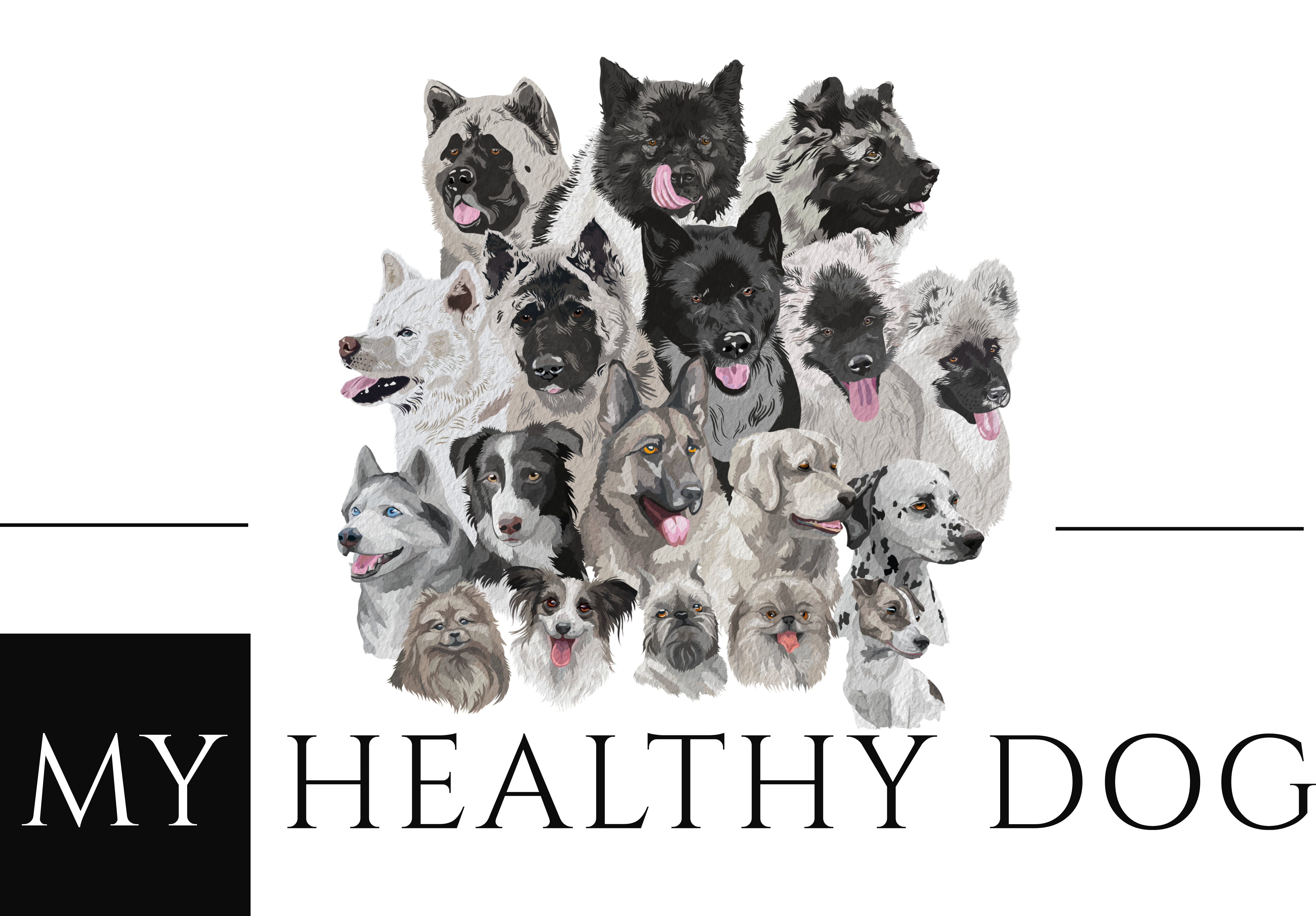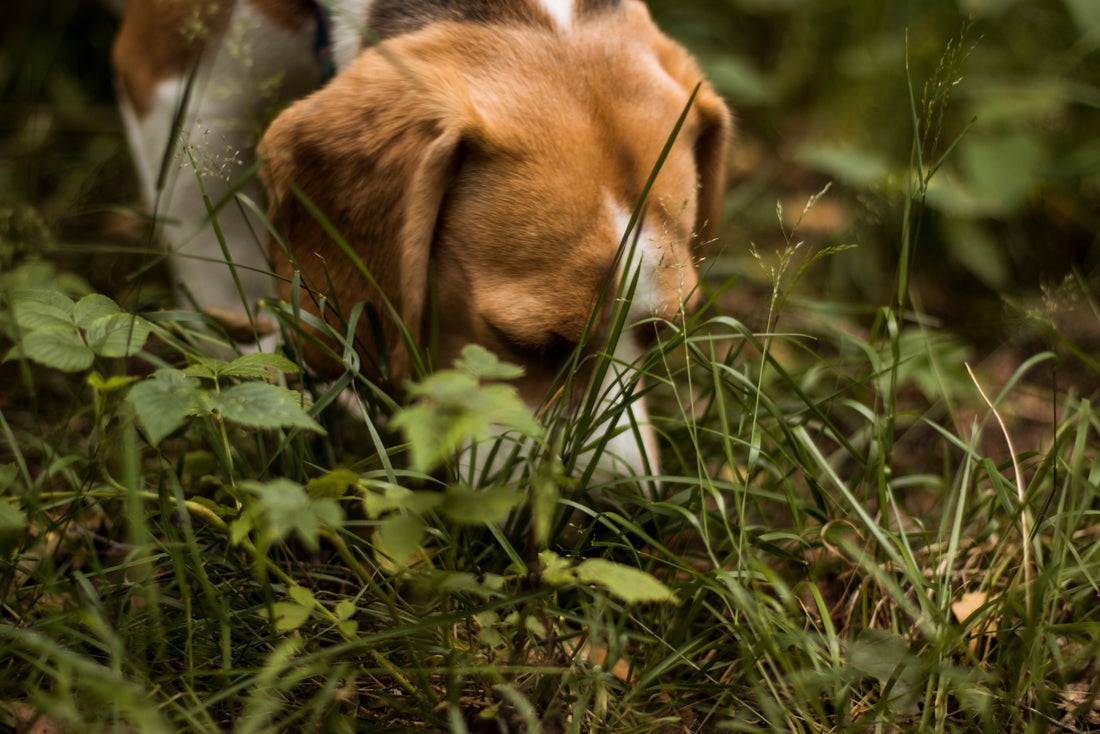Are you one of the countless pet owners who've pondered the question, "Why does my dog eat grass?" Well, you're not alone. This is one of the most commonly asked questions about dog behavior, and the answers might surprise you. In this comprehensive guide, we'll delve into the various reasons dogs munch on greenery, shedding light on this puzzling canine habit.
Reason 1: Nutritional Need
Dogs are omnivores, which means they eat both meat and plants. One reason why dogs eat grass is to fulfill a nutritional need. Grass contains essential nutrients like fiber, which aids in digestion, and dogs might instinctively consume grass to meet these nutritional requirements.
Add a Comprehensive Daily Multivitamin specifically designed for dogs to your pups daily routine. This first and simplest thing to do for poop eating is to minimize any nutritional deficiencies. Simply adding well-rounded daily multivitamin will address multiple possible reasons for eating grass.
No matter how high-quality a dog's diet might be, there are often gaps. The smallest gap can lead to significant problems. Small gaps can play a critical role in the body's functioning, proving that even minor details should not be overlooked. Adding such a multivitamin can add treasure trove of nutrients like Vitamin A, Vitamin D, and essential minerals like zinc and magnesium, effectively discouraging your pup from eating grass.
Reason 2: Digestive Aid
Another reason why dogs eat grass is to stimulate vomiting when they're feeling unwell. If your dog is eating grass frantically and then vomiting, they might be trying to alleviate stomach upset or indigestion.
Regular health check-ups can prevent most digestive problems. If your dog frequently eats grass and vomits, it's crucial to seek veterinary advice immediately. They may recommend adding probiotics for gut health, dietary adjustments or prescribe medication to manage your dog's digestive health.
Reason 3: Behavioral Instincts
Grass-eating might also be a behavior rooted in your dog's ancestral instincts. Wild canines would often consume plant matter in the stomach contents of their prey. This ingrained behavior might explain why dogs eat grass, even in the modern age.
While it's impossible to change instinctive behavior, providing a high quality multivitamin can help satisfy these instincts. Incorporating safe, leafy greens into their meals might offer a suitable alternative to grass.
Reason 4: Boredom or Anxiety
Just like us, dogs experience emotions, and their actions often reflect how they're feeling. If your dog is left alone for extended periods, they might eat grass due to boredom or anxiety.
Regular exercise, play sessions, and mental stimulation can help alleviate boredom and anxiety. If your dog shows persistent signs of stress, a professional dog behaviorist or a vet can provide further guidance.
Reason 5: The Taste Factor
Simple as it may sound, some dogs might just enjoy the taste or texture of grass! If your dog is selectively nibbling on particular types of grass, this might be the case.
Offer your dog safe alternatives that can satisfy their desire to chew. This might include dog-friendly vegetables, chew toys, dog-safe plants or a nutritious dog multivitamin.
So, is it okay if your dog is eating grass? Generally, it's considered safe unless it's causing regular vomiting or the grass has been treated with pesticides, herbicides, or other harmful chemicals. If your dog's grass-eating behavior seems excessive or is coupled with other signs of illness, it's essential to seek veterinary advice.
Understanding why dogs eat grass helps us to better cater to their needs and ensure their health and happiness. Keep an eye on your pet's behavior, and always consult a vet if you notice anything unusual. Dogs might not be able to talk, but their actions speak volumes about their wellbeing.
By providing a balanced diet, a complete health dog multivitamin, plenty of exercise, and mental stimulation, you can reduce the likelihood of unwanted grass-eating and ensure your pet's overall health. Remember, each dog is unique, and what works for one may not work for another. Always tailor your approach to your dog's specific needs and behaviors.







1 comment
I have my dogs on the best super food possible for dogs. Yet my pup is still consuming grass. I think it might be due to being bored. But not sure. He’s a large breed with lots of room to run and play. He’s got other dogs to play with. He gets training and play time with us. But I still find him munching on long stem grass. Sometime he vomits but not all the time. I’m really confused as to his reasoning for grass eating. He also gets a prebiotic supplement.